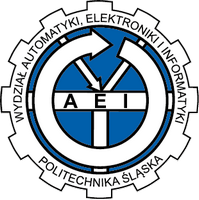| Knowledge –Students know and understand |
- issues of discrete and applied mathematics and optimization methods, including mathematical methods necessary for modeling, analysis of operation and synthesis of advanced analog and digital circuits,
- issues related to the fields of study related to automatics, electronics and computer science proper to the studied specialty,
- in-depth issues of arithmetic of digital systems and basic and advanced numerical methods,
- in-depth issues in the field of mathematical, analytical and algorithmic methods of solving various classes of optimization problems and building models and methods for modeling complex systems,
- in-depth issues specific to the studied specialty on methods of analysis and synthesis of complex control, electronic or information systems,
- in-depth issues specific to the studied specialty, on the description, construction, design and programming of simple and complex devices and systems,
- advanced issues in planning an identification experiment, collecting measurements, selecting model structure and methods of model verification,
- methods of estimating parameters of static and dynamic models, operation and methods of developing concurrent and parallel programs,
- economic, legal, ethical and other conditions of various professional activities related to the field of study, including the principles of industrial property protection and copyright,
- in-depth issues of automation, electronics and computer science, such as methods of inference and their application to the analysis and design of algorithms, issues in the field of signal theory and methods of signal processing,
- basic processes occurring in the life cycle of devices, objects and technical systems in the field of automation, electronics and computer science,
- advanced programming tools and methods of computer simulation of objects and control systems,
- in-depth issues concerning the tasks, structures and principles of operation of advanced algorithms related to the studied specialty,
- basic principles of creating and developing various forms of individual entrepreneurship,
- key issues in the field of operating systems, databases, Internet technologies and security of computer systems and networks,
- the main development trends and the most important new achievements in the fields of automation, electronics, computer science and telecommunications,
- fundamental dilemmas of contemporary civilization.
|
| Skills – Students can |
- use their knowledge - formulate and solve complex and unusual problems and innovatively perform tasks in unpredictable conditions by: - the correct selection of sources and information taken from them, evaluation, critical analysis, synthesis and creative interpretation and presentation of this information, - the selection and application of appropriate methods and tools, including advanced ICT,
- communicate on specialized topics to a variety of audiences,
- debate,
- use a foreign language at the B2+ level of the Common European Framework of Reference for Languages and a specialized terminology,
- Independently plan and implement their own lifelong learning and guide others to do so,
- co-operate with others in teamwork and take the leading role in teams,
- plan and conduct experiments, including measurements and computer simulations, interpret the obtained results and draw conclusions,
- formulate test and simulation models for automation, electronics or computer systems and perform optimization of hardware and software solutions,
- formulate and test hypotheses related to simple research problems in the field of automation, electronics and computer science
- assess the usefulness and applicability of new developments (techniques and technologies) in the design of control systems,
- critically analyze the functioning of existing technical solutions in the field of automation, electronics and information technology and evaluate these solutions,
- integrate knowledge of automation, electronics or computer science with knowledge from other fields of science and scientific disciplines and apply a system approach, also taking into account non-technical aspects,
- manage a team,
- complete an engineering task and suggest improvements (enhancements) to existing hardware and software solutions in the area of automation, electronics and computer science,
- identify and formulate specifications of engineering tasks and solve them - use analytical, simulation and experimental methods, - recognize their system and non-technical aspects, including ethical aspects, - make a preliminary economic assessment of the proposed solutions and engineering actions taken,
- solve complex engineering tasks, including unconventional tasks in the area of automatics, electronics and computer science,
- design simple devices, objects, systems or processes typical for their field of study in accordance with given specifications, using suitably selected methods, techniques, tools and materials,
- assess the suitability of methods and tools for solving an engineering task, including recognizing the limitations of these methods and tools.
|
| Social competence – Students are ready to: |
- critically evaluate the knowledge held and the content received,
- to recognize the importance of knowledge in solving cognitive and practical problems and to consult experts in case of difficulties in solving a problem independently,
- fulfill social obligations, inspire and organize activities for social environment,
- initiate action for the benefit of the public interest,
- think and act in an entrepreneurial manner,
- perform professional roles responsibly, taking into account changing social needs, including: developing the achievements of the profession, upholding the ethos of the profession, respecting and developing the principles of professional ethics and promoting the observance of such principles.
|








